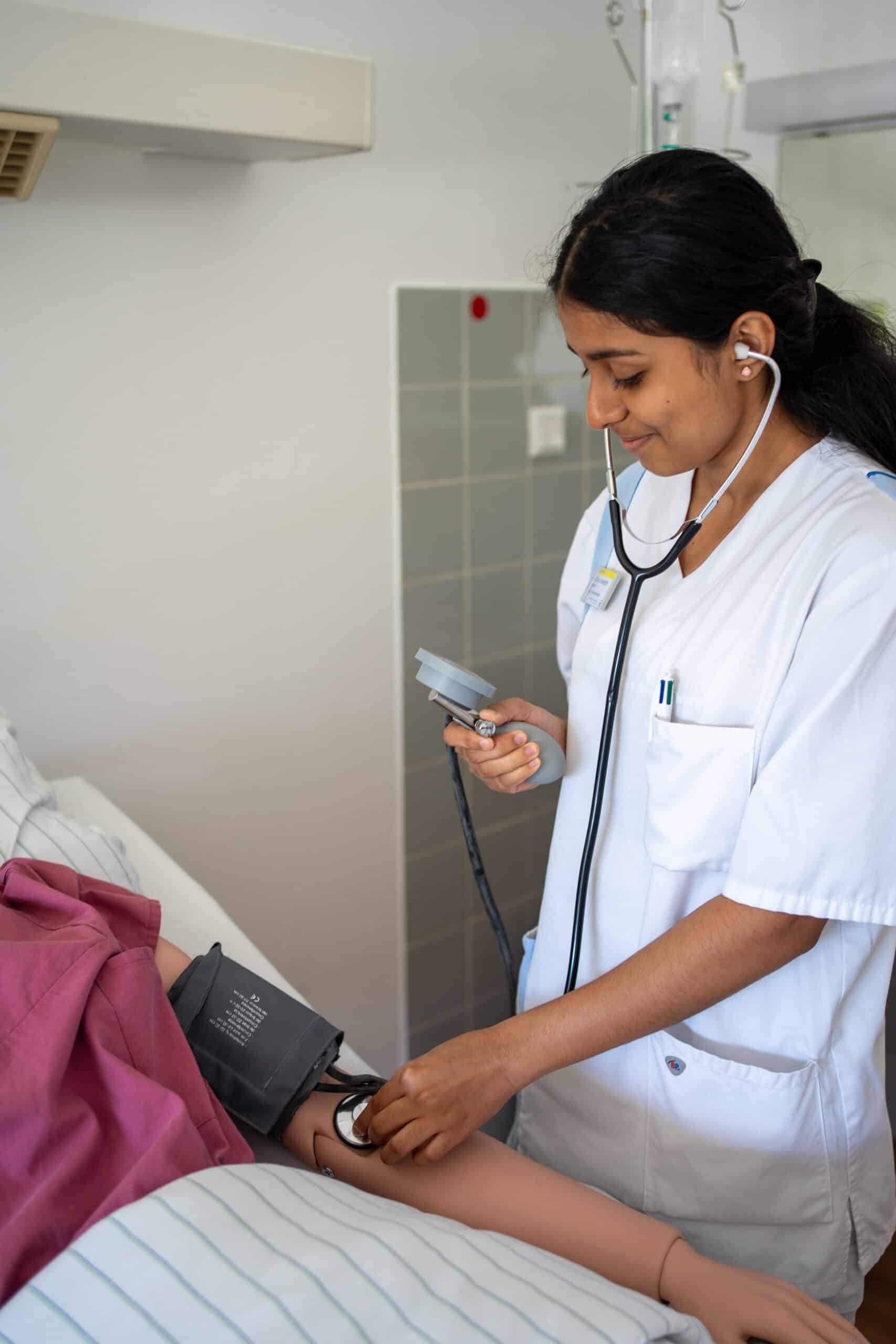
Undergraduate degree
There is also the option of an undergraduate degree in nursing. This gives you permission to use the professional title and the academic degree of Bachelor. This path is currently already possible at a few universities.
Many training institutions also offer dual study programs. You can start your desired course of study during your nursing training.
Training as a nursing assistant
Training as a nursing assistant is regulated by state law. This means that there are also differences from state to state. It lasts at least one year and ends with a state examination. It is the shortest vocational training course with state recognition. This route is also popular with older applicants who want to reorient themselves professionally at a later age.
Care is attractive
Opportunities for nursing training
Full-time training
Training to become a nursing assistant takes 3 years due to legal requirements.
This Nursing Professions Act is a federal law.
The prerequisite for this training is a successfully completed 10-year school education or a secondary school leaving certificate in combination with at least 2 years of completed training in nursing assistance.
The usual way to train as a nursing specialist is in a company of a care provider. These are hospitals, retirement homes and outpatient care services.
During your training, you will be practically deployed in all these areas. The training company organizes and plans the three years of practical training. The practical training comprises at least 2500 hours.
At the same time, you attend a state-recognized school-based training facility. Here, 2100 hours of theoretical instruction must be completed in the three years.
Part-time training
It is also possible to train as a nursing specialist on a part-time basis. This lasts a maximum of 5 years.
Everything at a glance
Facts about training
Various aspects play a decisive role in nursing training and make the profession particularly attractive. These include remuneration, opportunities for further training and the versatility of the nursing profession.
Overall, nursing training provides a solid foundation for a fulfilling career in the healthcare sector and opens up a wide range of opportunities for personal and professional development.
The remuneration for training as a nursing assistant varies depending on the federal state and the employer’s pay scale. It can be up to €1000.
With some training providers, you are also entitled to a supplementary pension. These contributions are paid by the employers alone.
Duration of training
Full-time: 3 years
Part-time: max. 5 years
POSSIBILITIES
Training in hospitals, long-term care facilities or outpatient care services.
Undergraduate studies in nursing are also possible.
Remuneration
1st year of training: EUR 1,190
2nd year of training: EUR 1,252
3rd year of training: EUR 1,353
There is never a dull moment in nursing.
No two days are the same.
Nursing career in Germany
Interested parties from abroad
Interested in nursing training in Germany?
Here, too, the potential trainers can help with the formalities.
It is important that language skills are already available at the start of the training. Language skills must correspond to level B1 of the Common European Framework of Reference for Languages, which means that you must already have language skills that go beyond the basics.
The required school-leaving qualification must also be recognized by the German authorities.
The minimum requirement is the completion of 10 years of general schooling.
Have you already completed nursing training abroad?
Here are the main points:
-
EU qualifications:
EU qualifications are automatically recognized in Germany, as a corresponding agreement exists. -
Non-EU qualifications:
For degrees from non-EU countries, individual recognition by German authorities is required. This process can take some time, but potential employers often assist with the process. -
Language requirements:
Foreign applicants must already have language skills at the start of their nursing training in Germany. These should correspond to level B1 of the Common European Framework of Reference for Languages, which means basic knowledge of German. -
School-leaving certificate:
A recognized school-leaving certificate after 10 years of school is also required.
Europe-wide recognition
Training as a nursing specialist is recognized throughout Europe by a European agreement. With this training, you can work anywhere in the European Union or set up as a freelancer. So you can always work where others are on vacation.
Study
Trainees with a vocational baccalaureate or Abitur still have the option of continuing their studies in nursing. Due to constantly changing requirements for the nursing profession, study programs are being created throughout the country that require nursing training to gain access.
The best known of these are nursing management for management activities in nursing, nursing science and nursing education, which entitles students to teach at educational institutions.
Everything is possible, from a Bachelor's to a Master's to a doctorate or professorship in nursing. This makes the nursing profession particularly interesting for high school graduates.
An apprenticeship with great potential
Anything is possible!
The Nursing Professions Act of 2017 enables nurses to undergo a wide range of training and work in various care areas. This includes the:
- Acute care in hospitals for adults and children
- It takes place in the outpatient sector with care services
- It takes place in long-term inpatient care facilities such as retirement homes